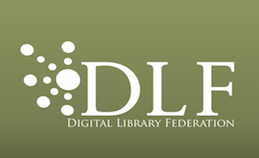Using Open Annotation
Session Type: Presentation/Panel
Session Description:
This session will examine scholarly digital annotation models, tools and
services, focusing on recent work by the
Open Annotation Collaboration
and the
W3C Open Annotation Community Group
to improve the interoperability of annotation applications and to make
annotations themselves more conformant with Linked Open Data principles. The
Community Group has published a RDF-compatible Open Annotation data model and
ontology. As a framework this enables a Web and resource-centric interoperable
annotation environment that allows leveraging annotations across the
boundaries of annotation clients, annotation servers, and content collections,
and provides a foundation on which developers can create dynamic,
full-featured and interoperable annotation tools and services.
Panel members will provide an overview of the Open Annotation data model and will describe three exemplars of interoperable digital annotation applications built with funding from the Andrew W. Mellon Foundation:
• Annotation framework for Fedora: Brown University Library has created an Open Annotation plugin for the Fedora Commons repository platform, as well as a demonstration of the tool using TEI collections. The open source plugin enables the creation, querying, retrieval, serialization, and sharing of annotations stored within Fedora repositories.
• Automated annotation of biomedical text: Most existing biomedical document annotation consists primarily of linking text spans to single terms or concepts; however, more structured representation is required for deeper understanding of text and automated reasoning. The University of Colorado Denver Center for Computational Pharmacology extended the Open Annotation model to support annotation with arbitrarily complex concepts, which can be composed from existing terminologies and ontologies, and to track annotation compositionality and provenance at coarse or fine granularity.
• Digital Emblematica: The University of Illinois Library has examined scholarly annotations digitized emblem book literature, demonstrating the use of the Open Annotation model to support the creation such annotations.
The panel will then engage the audience in a practical discussion about key
considerations in adapting and extending the core Open Annotation data model
to meet the specific needs of individual scholarly domains while creating
annotations that are portable beyond the context of the specific clientware
used to create them and facilitating the collaboration of scholars in
different locations, using different annotation tools and services across
disparate repositories of content.
Session Leaders:
Andrew Ashton, Brown University
Timothy Cole, University of Illinois at Urbana-Champaign
Jacob Jett, University of Illinois at Urbana-Champaign
Kevin Livingston, University of Colorado Denver
Session Notes:
View the
community reporting Google doc
for this session!
Session Slides:
